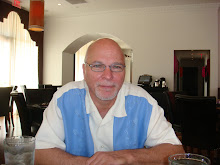 Stairway to Heaven Posted on October 30, 2010 by Rabbi Daniel Lapin
Stairway to Heaven Posted on October 30, 2010 by Rabbi Daniel Lapin I recently eavesdropped on a conversation taking place at a table adjacent to mine. A customer in the Dallas kosher restaurant in which I was having dinner was talking to the waitress. After thanking the waitress for excellent service, he asked what she did when she wasn’t waiting tables. When she responded that she was a recent immigrant and didn’t yet have other work, he said, “How would you like to earn a good living by helping women enjoy healthier skin and better looks?” To my amazement, there and then he hired the waitress to staff a cosmetic sales kiosk in one of the larger malls in Texas. Never mind hiring the waitress—I would have liked to hire him. He knew not to ask his prospect, “How would you like to make a lot of money persuading passersby to try a hand cream?” Instead, he motivated by painting a picture of a higher purpose. I remember how easy it was to ignite a contagious enthusiasm for chores among my young children provided I first spoke about how much we all owed my wife, their mother, before assigning tasks. I appealed to a higher purpose. Most of the brave men and women who enlist in the military do so to defend freedom and protect their loved ones. Army recruiters rightly emphasize these attributes rather than the pay or the working conditions. Needless to say, just as fire can cook delicious food, heat our homes and provide mechanized transport, it can also burn and destroy. The more powerful a tool, the more powerfully it can be used for both good and evil. Similarly, tapping into the worthy human desire to strive for a greater purpose than merely our physical existence can also be used for both good and evil. Politicians win support for unpopular policies by explaining, for instance, that confiscatory rates of taxation are necessary to “give every citizen free medicine,” to “help the children” or to “end poverty.” They know better than to justify higher taxes by explaining that they wish to hire more of their friends and provide them with lavish retirement benefits. Nimrod, who enslaved the populace to build the Tower of Babel, knew as all tyrants know, that you cannot subdue people by telling them, “I want to enslave you. I want you to work for my aggrandizement.” You have to find a way to appeal to their desire for a higher purpose. …Come; let us build a city and a tower whose top will reach heaven… (Genesis 11:4) Nimrod was speaking to a spiritual need. The tower was a metaphor for appealing to a higher purpose. In the Lord’s language, Hebrew, the word for tower-MiGDaL is closely related to the word for great-GaDoL. Not only is a tower a great building, but it is the physical depiction of our own human yearning to find transcendent purpose in our lives. Often companies build enormous headquarters, not because they need the space but because they want a symbol of their vision. Every one of us yearns to reach for the sky. Similarly, by orating about his stairway to Heaven, Nimrod is saying, “Come with me, I will help you reach for your highest aspirations.” On the positive side, knowing that on the deepest level most people are motivated best by a call to higher purpose is a practical and indispensable tool for managing a military, a business, or a family. A good leader takes the time to share his or her vision and the idea and passion behind it rather than simply relaying the task that needs to be accomplished. Mundane and often boring jobs lay the groundwork for majestic missions. Being able to envision the goal in grand terms makes even difficult tasks achievable. As for the waitress, I hope she will be one more among the many who have achieved success in sales under the guidance of a wise mentor.












No comments:
Post a Comment